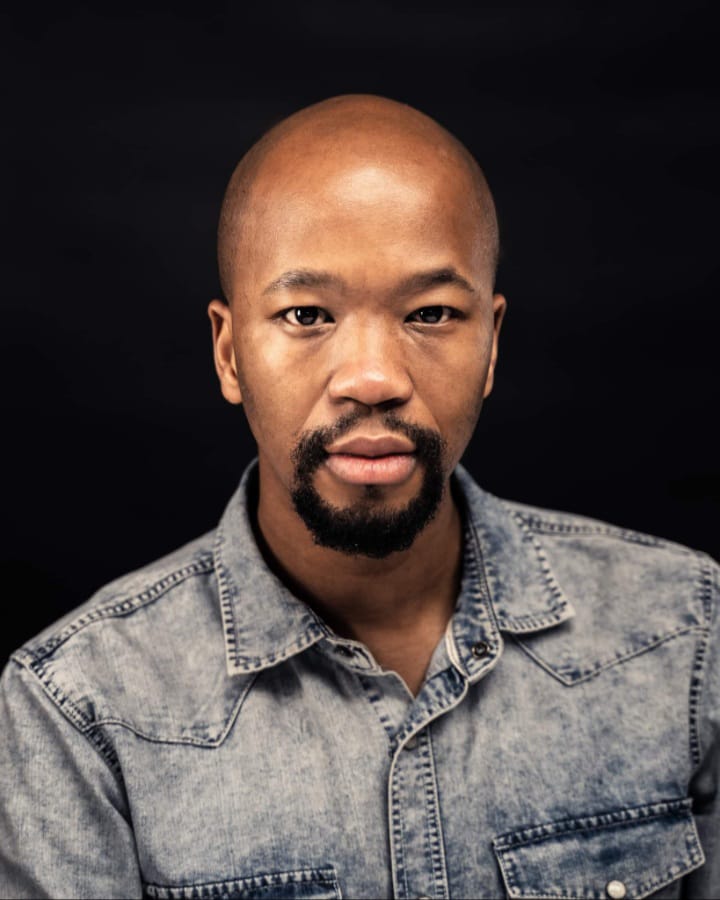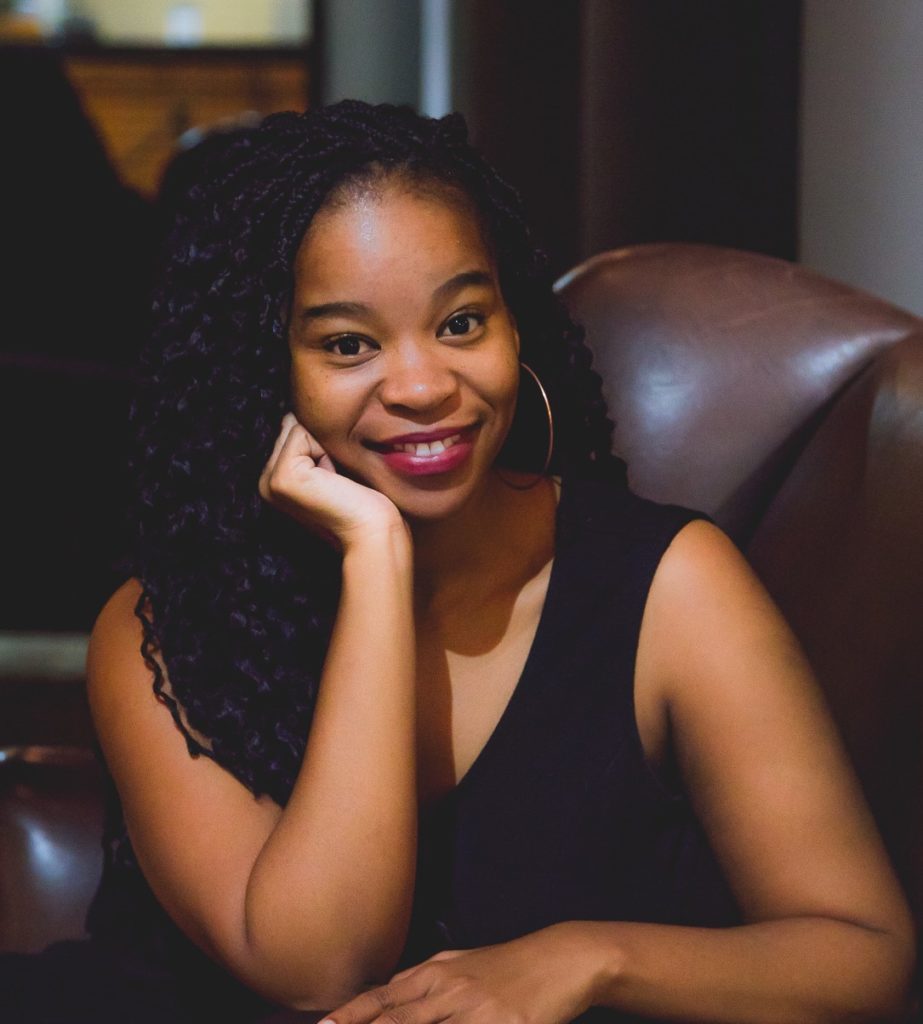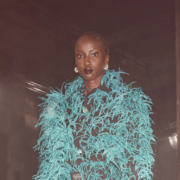Netflix’s African America Gives a Glimpse to The American Dream

Contribution by Margo Gabriel.
Contributing Writer; Margo Gabriel has the chance to dive into conversation with the writers, director and producer of Netflix’s African America.
African America, a new exclusive Netflix film released in July 2021, details a young South African woman who travels to New York to live out her dream of performing on Broadway but she encounters more trials than success that force her to question her life choices. Brother and sister duo, Muzi Mthembu is the director and his sister, Phumelele “Phumi” Mthembu, is a producer, writer and lead actress. The film was made in collaboration with Avril Z. Speaks a producer and New Jersey, native. African America was a “Best 1st Feature” 2021 Pan African Film & Arts Festival nominee that world premiered at the 2021 Pan African Film & Arts Festival. Muzi and Phumi are the teams behind MVP Productions based in South Africa. Muzi is a Creative Producer and Phumi is the Head of Business Development.
Films take us on a journey, sometimes that journey involves a level of emotional investment and other times it’s a much-needed escape. Oftentimes, directors present us with questions about our identity, our values, and even our dreams. We indulge and maybe even lean into the story they’ve woven for us. I had a chance to dive into conversation with the writers, director and producer of Netflix’s African America.

Muzi Mthembu by Munroe Portraits of AAA 
Phumi Mthembu by Djiko Demba of AAA
How did African America come about?
Phumi: I spent about 8 months in New York in 2014 and I became very disillusioned by what I expected versus what actually happened. It’s the small things that start to eat away at you, the cost of bread, everyone would say don’t convert because the currency is different.
I could never stop that conversion so bread costing $5 was crazy to me [laugh]. The atmosphere of how it felt like to be Black in New York City was very different for me to be in a place where you are the minority but when you come from a place like South Africa where almost everyone looks like you, you get shell shocked a bit.
Phumi: I became very disillusioned in 2015 on New Year’s day and I was extremely downhearted and felt like I failed. There’s this idea that if you go to New York, you have got to make it. You’re in a rat race and you want to be the number one rat [laughs]. I came back feeling like the last rat. I really had to mull over it and then the idea to write African America came to me and to share that experience. Muzi came on board to write the dialogue around the Trump era. That is the origin of the story.
Muzi: I love my sister very much. America has always been this utopia in both of our minds. Its Disney movies, Whitney Houston and all of these great icons come from–this magical land. And my sister was going to study in this wonderful place. She came back crestfallen. That kind of took me aback seeing her that way. When it came time to write the screenplay for African America, I came to New York in 2017, this is now the Trump era and the Trump administration had taken over. We see the traces of the implications of their foreign policy globally.
Muzi: From 2017 to 2020, it was absolutely the antithesis of what we thought that land was going to be like. There really is no perfect place. There really is no perfect country. Citizenship is hard no matter where you are. You still have to be an active citizen to create the utopia you dream of. That’s how the story began. We shot the movie in 2019. And it is on Netflix.
People still have this perception of America being this “magical” place. There are so many questions that the film asks of its viewers. What are your thoughts on that?
Phumi: I think what’s also just interesting is for Americans to see Africa as it is in 2017 when the film was set. The fact that it is a city and a place like any other, so many Americans have an idea of Wakanda or Zamunda which are great–I love Coming To America. But also, that’s not Africa that is escapism; this is what it’s really like in Africa. I think it’s really great for audiences to see that, as well.
You mentioned escapism. What is the message you want viewers to walk away with after watching African America?
Muzi: The takeaway of the film is the grass really is greener where you water it. That ultimately realizing your dream isn’t nearly as important as realizing who you are; overcoming your own flaws, your own nature, your own cynicism that you will carry with you no matter where you go. I joke, ‘You can be cynical in Senegal or you can be cynical in Syracuse’ [laughs]. You really do take your nature with you wherever you go.
Muzi: The main character, Phumelele, her flaws underestimate her selfishness and that’s something she has to confront in the film and openly deal with. She is thinking very much for herself but she doesn’t understand that home, in a way, is about those whom you’ve left behind, your family and your network. That is what the film hopes to highlight.
Muzi: Make no mistake, there are people who absolutely need to leave their country who come from wartorn countries and places like America, the U.K. are great alternatives. Currently, in South Africa, we are dealing with the crisis of the brain drain, where some of our best and brightest are leaving to go develop other already developed nations. We do need that skill set to solve our problems. Ultimately, I am hoping the film will inspire people to consider going beyond their own selfishness and self-interest to better their homes.
Phumi: That is really dope, I have not heard that perspective before.
Muzi: Thank you.
Phumi: The main character, Phumelele, I have heard, people love to hate her. I had my own judgments of her. She went to extremes to fulfil her dream. But we also all have that desire to see things happen, to test the waters. And see how far we can go with these dreams of ours that we kind of repress as we grow older. There are so many people that are at jobs that pay their rent but also have bigger dreams in life. As much as we judge Phumelele, we know she could have done better, and I think we are angry at her because we know she could have done better. She is capable of getting there without having to resort to the measures she did.
Phumi: She inspired us in the making of this movie, that tenacity to see it through. That belief in yourself when people are tearing up your acceptance letter and tearing up your dreams. I really hope that beyond the judgement of her; that I continue to take from her that tenacity, that inspiration, that courage to go for it. Do decide to go for it and as Muzi said, if nothing else, you will realize who you are. You will get there; it won’t be a loss.

How do you feel the film resonates with men and women audiences? The burden to fulfil certain duties wherever you are in the diaspora falls on Black women.
Muzi: I am also just interested in how the story resonates with women, as opposed to men. The compulsion to live your dreams. The thing about her [Phumelele], she was a woman who has got duties, and her duty as a woman is something that always hangs over her head throughout the film. As a male director, I was sensitive to how to tell that story. In my mind, I wanted her to not care so much about these pressures put on her which are very sexist. I am also curious about women audiences, could they relate to that need of just escaping from a system that already takes so much from them so much joy and going for their dreams. I am curious how women relate to the story. It would be a completely different story if it were a man, but because she is a Black woman in this world pursuing her own passions and dreams, it takes on a completely different meaning.
Phumi: It has been interesting to see how strongly people react to the film, especially men to Phumelele’s decisions. Some may think, ‘The whole movie sucks because of this one character and I get tickled by it because a person can be so compelled by my character that they’ll actually write about it. It is very interesting. One of the things the movie proposes is what other way was there for my character? She is less paid than most people in the film, she is driving her dad’s car, she lives at home with her mom and then goes to live with her husband who thinks he owns her. We have gotten feedback from women in the Canary Islands who are inspired by Phumelele’s character, which is different from some men who have seen the film.
Muzi: The idea though, that some men are upset about the film is that they have sexist ideas of what women should do and be. So when they accuse the main character, Phumelele, of being selfish, what we forget is that her husband, Tumelo, discourages her dream, discourages her voice and does not encourage her to sing. They have more empathy for an abusive American man than for Phumelele who is trying to pursue her dream.
When did you film and how long? You were between South Africa and New York.
Muzi: We filmed it in the year 2019. And we filmed it over a period of 15 days.
Phumi: The planning of it was a lot longer because we thought we needed a lot more. We were still trying to fundraise and we decided to go with what we had. We met some really great creatives. We met Avril Z. Speaks in the development process and she comes from the Indie School where you do what you have to do to get a film made. She really helped us to shoot in New York City for the first leg of the shoot. She got such an incredible crew together that was light, creative and solutions-oriented. We feel like we’ve learned how we want to make content just from that experience and keeping it small and compact and passionate.
Are there any films or books that inspired African America?
Muzi: Coming To America [laughs]. African America really is a nod to Coming To America. From the opening scene with the extravagant wedding. The idea of looking for a queen; Phumelele goes to America to look for herself. The film is a huge nod to Coming To America.
Phumi: Also, [the book] Americanah, was an influence because of the duality of the character in that book. I think that book is one of the reasons that inspired me to go to America. I wanted to see what that was like, I didn’t quite understand but I understand now [laughs]. Even the Wizard of Oz, there being no place like home and that journey to find the magic, I suppose.
Are you both currently working on any upcoming projects?
Muzi: Yes, we are. We are about to start a shoot on a new legal drama series about race relations in the city of Cape Town. And also our second feature film, which is set in Durban. That one is going to be a comedy and a bit lighter.
Are there points you want to share with the audience?
Phumi: The film doesn’t end the way you think it might. Take a look at the last scene. The main character does not get back together with her husband. Every time you see her name, it tells you who she is and where she is in her life.
Muzi: Watch the film and realize when you fall in love with someone you make a career decision. Especially if you are a woman, it is important that you are aligned.
Contribution by Margo Gabriel.
Check out the GUAP Arts & Culture section, to discover new art, film, and creative individuals.




![ZINO VINCI’S ‘FILTHY & DISGUSTING’EP BRINGS YOU TO THE CORE OF THE ARTIST [@ZinoVinci]](https://guap.co/wp-content/uploads/2023/10/Zino-4.jpg)







![Remel London’s [@Remel_London] “Mainstream” is a must attend for upcoming presenters!](https://guap.co/wp-content/uploads/2017/02/REMEL-LONDON-FLYER-FINAL-YELLOW-COMPLETE-1.png)